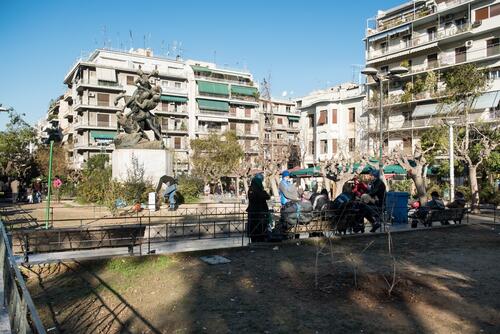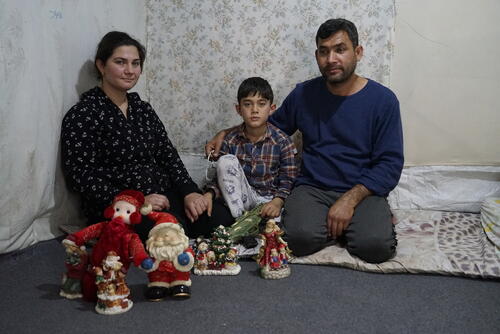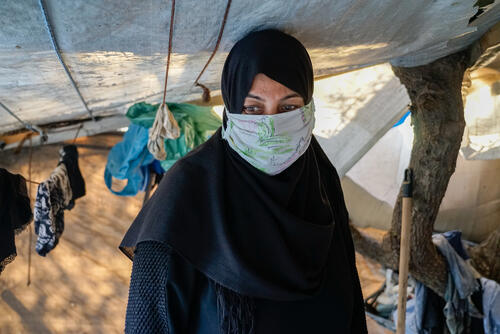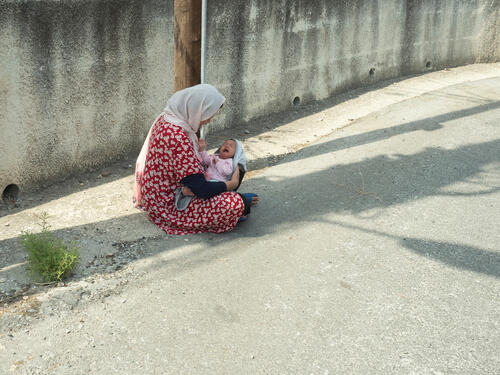- An increasing number of MSF patients with severe health and mental health conditions in Greece are being threatened with eviction or have been evicted from their accommodation.
- The Greek government has been granted EU funds for enlarging the mainland’s accommodation scheme, yet to find a quick solution for the congested camps on the islands, the eviction of more than 11,000 recognised refugees has begun.
- MSF is calling on the Greek government to stop the evictions of all vulnerable people (pregnant women, victims of sexual abuse, victims of torture, elderly, families with children) and identify alternative solutions.
- Sending vulnerable people to the street, especially during a pandemic, is inhumane and non-sustainable.
Athens – An increasing number of refugees in Greece with severe health and mental health conditions are being threatened with eviction from their accommodation, cut off from cash assistance and left in the streets without access to shelter, protection or proper healthcare.
Looking for a quick solution to decongest the overcrowded camps on the Greek islands, the Greek government has begun to evict more than 11,000 beneficiaries of international protection from their supported accommodation in Greece, many of whom are extremely vulnerable.
Médecins Sans Frontières (MSF) is calling on the Greek government to suspend evictions of vulnerable people, including survivors of sexual violence, torture and ill treatment, the elderly, and people with chronic diseases; to identify immediate accommodation solutions and to enlarge the existing accommodation programmes.
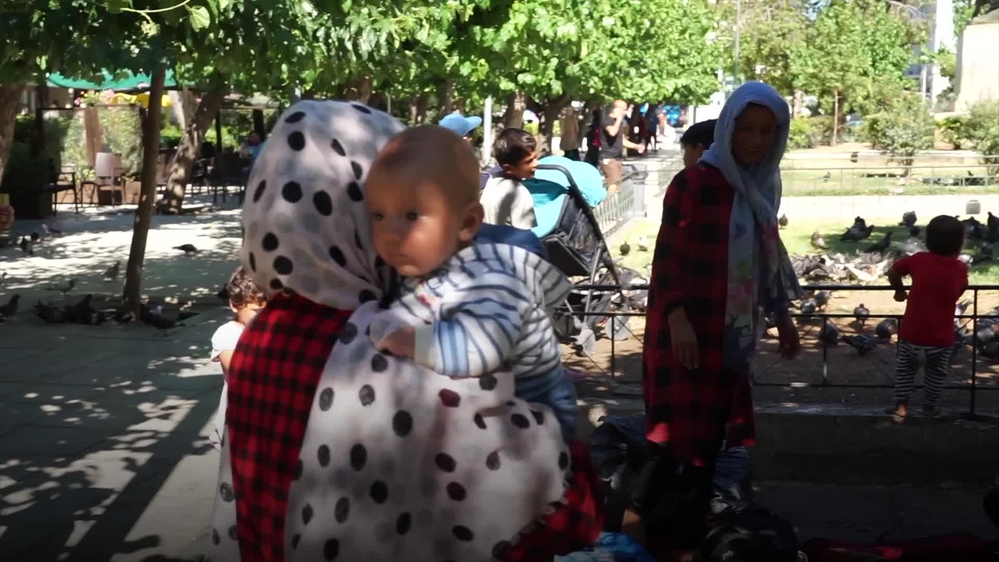
Greece evictions
In the midst of a global pandemic, governments should be protecting people at high risk of COVID-19, not throwing them out onto the streets.Marine Berthet, MSF medical coordinator in Greece
“We have patients with serious medical conditions who are being abandoned, while women in an advanced stage of pregnancy are sleeping on Victoria Square in central Athens,” says Marine Berthet, MSF medical coordinator in Greece.
“In the middle of a global pandemic, governments should be protecting and shielding people at high risk of COVID-19, not throwing them out onto the streets and leaving them without protection, shelter or access to basic healthcare.”
In June, an extremely vulnerable MSF patient died from a cardiac arrest shortly after she was threatened with eviction and subsequently left her accommodation.
“Our patient who died was paraplegic and had multiple serious medical conditions, including diabetes and cardiovascular disease, yet she had been threatened with eviction on multiple occasions,” says Berthet.
“Under the fear of losing her home, her family moved her to Schisto camp, where her son was staying in a container with 12 other people; two days later she suffered a cardiac arrest and died.”
At least 30 other MSF patients with serious medical conditions have either been evicted or notified of eviction, and now face the prospect of being homeless and cut off from cash assistance.
We have patients with cancer, survivors of torture, single mothers with chronic diseases and heavily pregnant women who are essentially being told to sleep rough, without any support.Marine Berthet, MSF medical coordinator in Greece
"The case of the woman who died is just the tip of the iceberg,” says Berthet. “We have patients with cancer, survivors of torture, single mothers with chronic diseases and heavily pregnant women who are essentially being told to sleep rough, without any support.”
Many MSF patients with serious chronic diseases have had their possessions removed from their accommodation and been told they must leave, without any indication of where they should go.
Dozens of other patients have been notified that they must leave, while their cash assistance has been stopped, despite their extreme vulnerability. Meanwhile, the city squares are filling up with vulnerable refugees, including children, pregnant women, newborn babies, people with severe chronic conditions and survivors of torture and sexual violence.
In June this year, Greece’s Ministry of Migration and Asylum pledged to cut spending on the housing programme for asylum seekers by up to 30 per cent. Meanwhile, in February, the Greek government was awarded EU funds to enlarge the accommodation scheme on the mainland. However, so far, no extra accommodation has been made available.
In response to the hundreds of refugees sleeping on the streets of Victoria Square in Athens, we are referring those most in need of medical care to our daycare centre in Athens. However, the refugees’ most basic needs are not being covered.
We urgently call on the Greek government, the EU and all organisations involved in providing shelter to find immediate accommodation solutions for all those refugees currently sleeping on the streets of Athens, and to halt evictions of refugees until all administrative barriers to integration and access to healthcare have been lifted.



